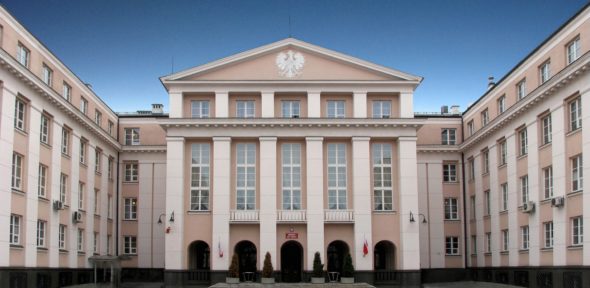What goes on in Poland on the 17th of June.
Government: Construction of the remaining sections of Baltic Pipe continues despite problems in Denmark
„The revoked environmental permit decision for the onshore Baltic Pipe section in Denmark concerns only one of the five parts of the gas pipeline. Work on the remaining ones is continued,” emphasized Piotr Dziadzio, Deputy Minister of Climate and Environment.
The deputy minister and the country’s Chief Geologist presented information on the energy security of Poland. During his speech Dziadzio referred to, among others, the issues facing the Baltic Pipe. „The Baltic Pipe is a strategic project for Poland, and Poland is constantly in touch with its Danish counterparts when it comes to revoking the environmental permit. The revoked decision concerned only one of the five parts of the gas pipeline, and work on the remaining sections is being continued. We see a fairly large will of the Danish partners to complete this investment,” Dziadzio said in the parliament.
At the beginning of June, the Danish transmission system operator Energinet announced that the Danish Environment and Food Appeals Committee revoked the environmental permit for an onshore section of Baltic Pipe pipeline in Denmark. The pipe is to carry gas from Norway via Denmark to Poland. The case was referred for re-examination by this office. This decision means that the Danish Environmental Protection Agency has to carry out additional studies necessary for the environmental assessment.
Niels Bjorkbom from the Danish Environmental Protection Agency told BiznesAlert.pl that it would take 7-8 months to obtain a new environmental decision for the onshore Baltic Pipe section in Denmark. According to the original schedule, the pipeline is to be ready in October 2022.
Poland’s Supreme Audit Office crushes the act on energy prices: Ad hoc, fast, prices are rising anyway
The Supreme Audit Office (NIK) stated that the act on electricity prices was effective only in 2019 and was of an ad hoc nature. „The document was supposed to fulfill the government’s promises of no increase in energy prices, but it was prepared in a hurry. As a consequence, its preparation was inconsistent with the rules of legislation. It took place without consulting the entities regulated by the act, with an incomplete assessment of its effects,” the Supreme Audit Office emphasized.
The Office stressed that the minister responsible for energy issues did not prevent a surge in electricity prices. „It happened despite the consistent policy of the European Union to reduce CO2 emissions, and the awareness of its consequences for the Polish energy sector. The prices of CO2 emission allowances continued to rise, and consequently the prices of energy generated from fossil fuels also had to rise. The act on electricity prices only operated in 2019 and was of an ad hoc nature,” the report claimed.
According to the Supreme Audit Office, the act was prepared in a hurry. „As a consequence, its preparation was inconsistent with the rules of legislation, without consulting the entities regulated by the act, with an incomplete assessment of its effects,” the explanation continued.
The analysis shows that the price of electricity generation in Poland is mainly influenced by the prices of hard coal and lignite, as well as the price of CO2 emission allowances. NIK inspected the Ministry of Climate and Environment, the Energy Regulatory Office (ERO), the Settlement Manager and electricity trading companies. The audit covered the period from January 1, 2016 to June 30, 2020.









